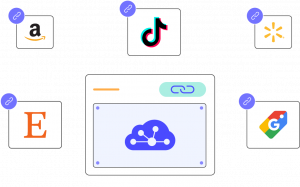If you’re an eCommerce business owner, you know that there are a lot of different software options out there to help you run your business. But which one is the right fit for you? In this blog post, I’ll take a look at some of the top Multiorders alternatives, so you can make an informed decision about which software is right for your business. Popular alternatives to Multiorders include:
Pros and Cons of Multiorders
Before diving in top list of Multiorders alternatives. Let’s look at Multiorders one more time. This app offers a range of features that cater to eCommerce businesses seeking a centralized platform for managing orders, inventory, and shipping. However, as with any software solution, there are both advantages and disadvantages to using Multiorders.
Pros of using Multiorders
- Centralized Management: Multiorders consolidates orders from multiple sales channels, making it easier for merchants to oversee all transactions in one place.
- Integration Capabilities: It seamlessly integrates with popular eCommerce platforms, marketplaces, and shipping carriers, allowing for streamlined operations.
- Inventory Synchronization: The software synchronizes inventory across all sales channels, reducing the likelihood of overselling and stock discrepancies.
- Automated Shipping: Multiorders automates shipping processes, offering discounted shipping rates and printable labels, which can help save time and money.
- Customer Support: They provide dedicated customer support, which is crucial for resolving issues and optimizing the use of their platform.
Cons of using Multiorders
- Limited Integration: Multiorders supports only small number of integrations (only Amazon, Etsy, eBay for marketplaces).
- Complexity for Beginners: The wealth of features and options can be overwhelming for new users or small businesses that do not require such advanced functionality.
- Pricing: It can be cost-prohibitive for smaller operations or startups due to its subscription-based pricing structure.
- Learning Curve: There is a learning curve associated with mastering the software, potentially leading to a longer setup time and a delay in seeing benefits.
- Dependence on Third-Party Integrations: Reliance on other systems means that any downtime or issues with integrated platforms could disrupt business operations in Multiorders.
Evaluating the pros and cons of Multiorders is essential for eCommerce businesses to determine if it aligns with their operational needs and growth objectives and see if you should look for other apps like Multiorders to support your eCommerce operation.
Understanding the Need for Multiorders Alternatives
Diverse business models may require specific features that Multiorders does not offer, leading merchants to look for tailored solutions that match their unique demands. Pricing is another significant factor. Startups and small enterprises might find Multiorders’ cost prohibitive and look for more cost-effective alternatives without sacrificing functionality.
User experience can prompt a search for substitutes. If the interface is not intuitive or user-friendly, businesses may prefer software with a simpler learning curve to ensure their team can adopt it with minimal training. Integration limitations with other tools and platforms can be a deciding factor. Businesses may need a system that seamlessly merges with their existing tech stack or caters to new sales channels.
Customer support and service can also be critical. Prompt and efficient support is vital for the resolution of any issues that might arise, encouraging the pursuit of alternatives and boasting superior customer assistance.
It becomes imperative to explore lead generation software like multiorders that align more closely with their particular business model, budget, technological requirements, and customer service expectations.
Top 8 Multiorders Alternatives to Power Your eCommerce Growth
1. LitCommerce – The Best Alternative to Multiorders
The first name on the Multiorders alternatives list is LitCommerce. LitCommerce is considered one of the best Multiorders alternative for multichannel selling.
One tool to rule them all
Multiorders only supports connecting 3 marketplaces (Amazon, eBay, Etsy). As one of the Multiorders competitors, LitCommerce allows you to connect your Center store with over 20 best online marketplaces and trending social media, but it does not stop there. You can manage all 20+ marketplaces simultaneously, right from your Center store dashboard (Shopify, Wix, BigCommerce, WooCommerce, etc.).
One click to list them all
I understand that manually editing multiple listings can be very time-consuming. Well, with LitCommerce QuickGrid, you can edit thousands of listings on multiple channels is only a few clicks.
So, what is it? LitCommerce QuickGrid is a spreadsheet-style interface that lets you view, edit, and manage all listings on a single screen. It offers an alternative and more advanced way to quick-edit your listings.
Using a spreadsheet layout, you can effortlessly and promptly edit products individually or in filtered groups. Moreover, LitCommerce Template & Recipe makes the process of editing listings quicker as you can create rules to bulk-update products. Basically, it is a set of attributes for listings on a specific sale channel that is used for quickly creating or editing product listings. If you change the template, it will automatically be updated to all listings using this template.
One click to sync them all
Another feature of LitCommerce that makes it the top choice among Multiorders alternatives is near real-time inventory and order sync. It needs just one click to turn this feature on. Once activated, LitCommerce will automatically sync your inventory and order information between your Center store and all your sale channels. This can help you avoid both overselling and stockouts. Regarding order sync, all orders from different channels can be pulled into your web store, centralizing all your orders in one single place.To sum up, despite being one of the free alternatives for multiorders, LitCommerce is a more powerful option when managing all your sales channels. To know if LitCommerce is the perfect match for your needs, try out LitCommerce for free!
Embrace LitCommmerce Multichannel Selling Instead!
Escape limitations and unleash potential! Upgrade to LitCommerce for seamless multi-channel selling, 20+ marketplace connections, advanced features, and dedicated support.
2. Extensiv – Automated Inventory and Order Management System

Extensiv is a multiorders competitors that helps ecommerce businesses automate their inventory and order management. It is a complete solution that integrates with all major marketplaces and shopping carts, and provides real-time visibility into inventory levels, orders, and shipping status. This app is an ideal solution for businesses that sell on multiple marketplaces and need a centralized system to manage their inventory and orders.
Extensiv is a powerful tool that can help businesses save time and money by automating their inventory and order management. It is easy to use and has a wide range of features that can be customized to fit the specific needs of any business.
This Multiorders alternative comes at a hefty price, making it an enterprise-level solution unsuitable for most small businesses. Its implementation complexity and steep learning curve require dedicated resources and technical expertise, potentially leading to significant setup and training costs.
While ideal for high-volume brands and 3PLs with intricate fulfillment needs, Extensiv might be overkill for simpler operations, offering unnecessary features and overwhelming functionality for smaller players.
Pricing: From $39 to $199 a month (free trial available).
3. Linnworks – Cloud-Based Ecommerce Management Solutions
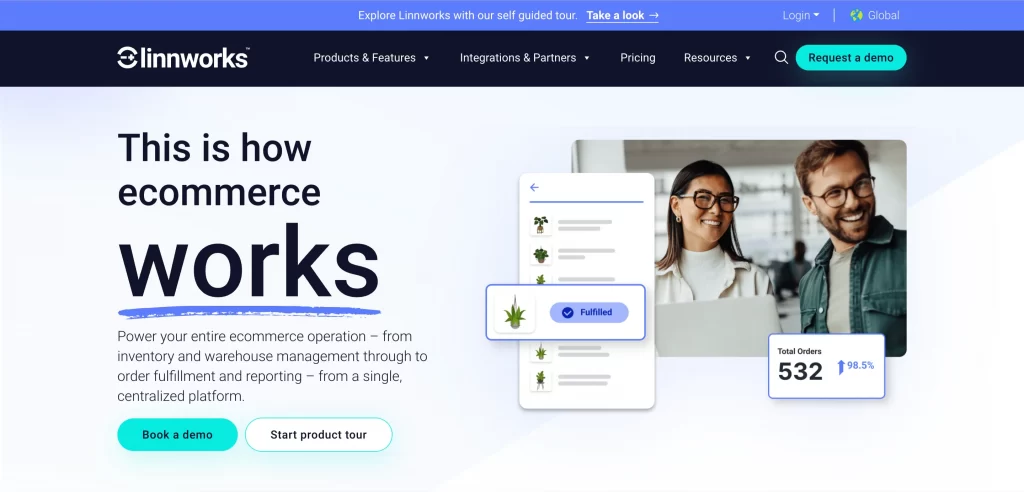
Overall, Linnworks is a great alternative to Multiorders because it offers a more complete set of features and tools. Additionally, the platform is easy to use and provides users with a wide range of customization options.
One of the most important aspects of Linnworks is its order management system. The system allows users to track and manage orders from multiple sales channels in one central location. This makes it easy to monitor and fulfill orders, as well as track inventory levels. Additionally, the system provides users with powerful tools for managing shipping and returns.
Another great feature of Linnworks is its inventory management system. The system provides users with tools for tracking and managing inventory levels across multiple sales channels. This makes it easy to ensure that inventory levels are maintained at optimal levels, and that products are available when customers need them. Additionally, the system provides users with the ability to create and manage product listings.
While Linnworks boasts powerful multi-channel management and automation, its steep learning curve can be daunting for beginners, requiring significant time and effort to become proficient. The high cost of this Multiorders alternative can be a barrier for smaller businesses, and technical expertise is often necessary for full feature utilization. Consider if your business complexity and volume truly justify the investment before diving into Linnworks’ powerful, yet demanding, platform.
Pricing: Depending on business need (No free plan is available), around £6,000 – £20,000/year.
4. Brightpearl – All-in-One eCommerce and Retail Management Solution

Brightpearl is one of the Multiorders competitors. With it, businesses can manage their inventory, orders, customers, and accounting in one place. The platform includes powerful tools for order fulfillment, product management, customer relationship management, and more. Brightpearl is a great solution for businesses that are looking for an all-in-one platform to manage their eCommerce operations.
The platform offers a free trial so that businesses can try it out before committing to a paid subscription. The free trial includes all of the features of the paid subscription, so businesses can get a full understanding of what the platform has to offer.
If you’re looking for an all-in-one eCommerce platform, Brightpearl is a great option to consider. The platform offers a free trial so that you can try it out before committing to a paid subscription.
This Multiorders alternative’s extensive automation and global reach are seductive, but its hefty price tag and implementation complexity can be a harsh reality check for small businesses. Steep learning curves and the sheer volume of features can overwhelm new users, requiring dedicated resources and technical know-how. While a dream solution for large, well-oiled operations, Brightpearl might be overkill for simpler inventories, leaving you paying for features you won’t fully utilize.
Pricing: This alternative to Multiorders is for merchants trading $1M or above or those that expect to be in the next 12 months. As mentioned above, their pricing depends on the customer’s needs. It charges a price of roughly $10K for onboarding data, setup, and training, which is a fairly high price for small businesses.
5. ShipStation – Streamlined Multi-Carrier Shipping Software
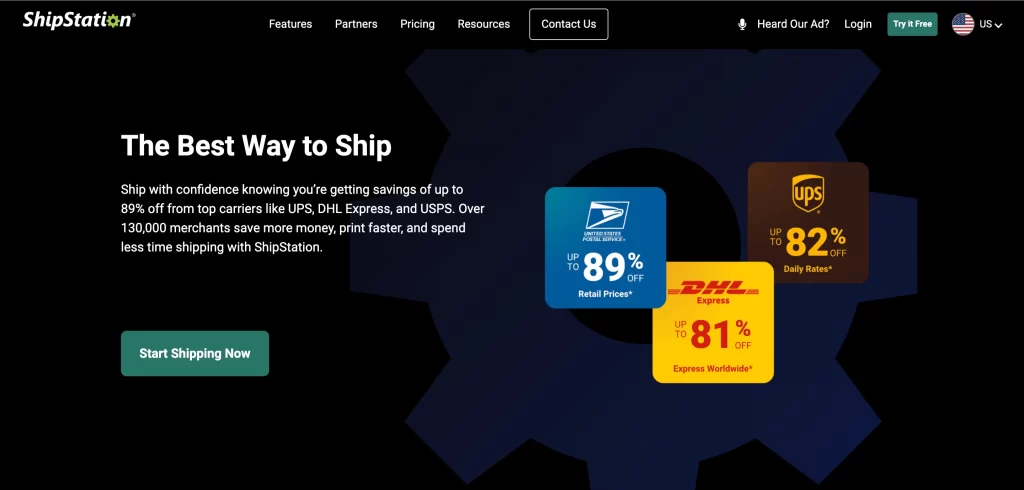
Overall, ShipStation is a great shipping software that can save you a lot of time and money. If you are looking for a way to streamline your shipping process, then ShipStation is a great option.
One of the best things about this Multiorders alternative is that it is designed to work with all of the major carriers. This includes FedEx, UPS, and USPS. You can easily connect your account with each of these carriers, and then ShipStation will handle the rest. This makes it easy for you to get your orders out on time and without any hassle.
Another great thing about ShipStation is that it can save you money on your shipping costs. The software will automatically compare the rates of all of the different carriers and then choose the one that is the most cost-effective. This can save you a lot of money on your shipping costs.
ShipStation’s shipping focus shines, but its limited inventory management features might leave you needing another tool for complete operations. While integrating well with existing inventory systems, it doesn’t stand alone for all your stock needs. Businesses with complex inventory setups might find this Multiorders competitor’s basic functionalities a bottleneck, pushing them towards a more comprehensive solution.
Pricing: From $9.99 to $229.99 per month
6. TradeGecko – All-in-One Inventory Platform for SMBs
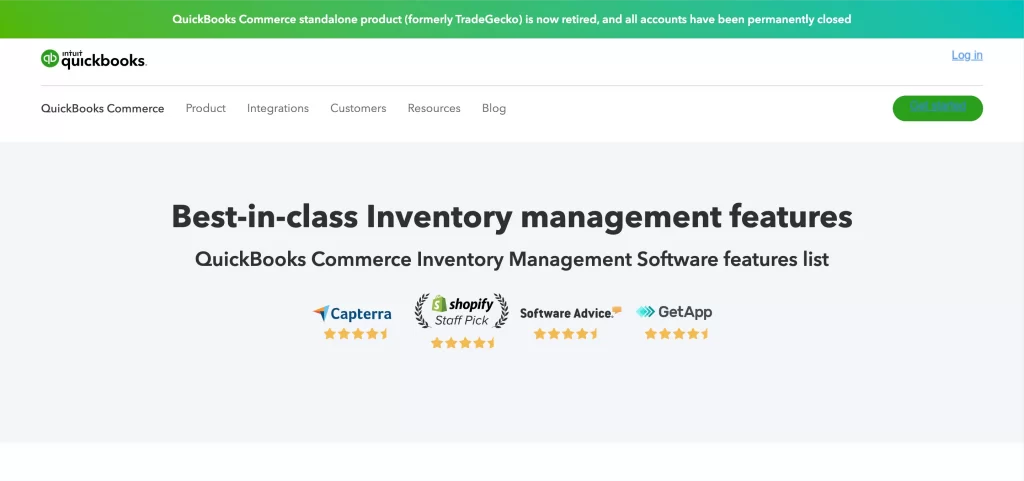
TradeGecko (now is QuickBooks), is another free alternative for multiorders. It helps businesses save time and money, and it provides them with valuable insights.
TradeGecko includes features such as inventory management, order management, customer management, and reporting. It also integrates with popular eCommerce platforms such as Shopify, WooCommerce, and BigCommerce. This makes it easy for businesses to get started with TradeGecko.
There are some benefits of using TradeGecko. First, it saves businesses time by automating many tasks. For example, businesses can automate their inventory management so that they always know what inventory they have on hand. This prevents over-ordering and stock-outs. Second, TradeGecko helps businesses save money by reducing the need for manual data entry. This means that businesses can avoid errors that can lead to lost sales and customers.
While this Multiorders alternative offers ERP muscle for retail and wholesale, its learning curve can be a steep climb for those just starting out. The feature-rich system, ideal for multi-channel expansions and complex inventories, might feel overwhelming for businesses with simpler needs. Integration with Amazon can feel limited, potentially restricting those heavily reliant on the platform.
Pricing: From $30 to $200 (30-day free trial available)
7. Orderhive – Cloud-Based Order Management System
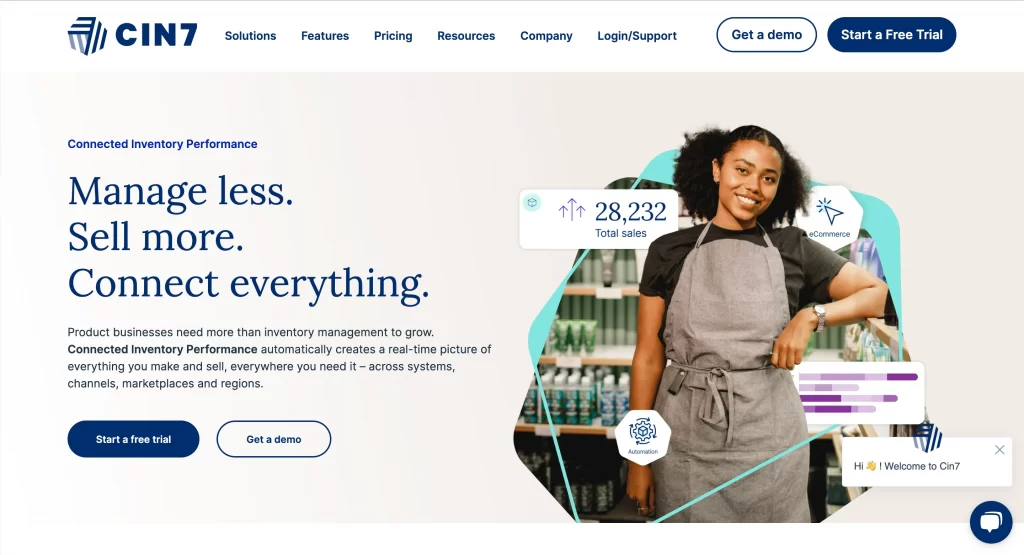
Orderhive is a cloud-based order management system that is designed to make your life easier. With this alternative to Multiorders, you can manage your orders from a single platform. This means that you can save time and money by not having to use multiple software programs to manage your orders.
In addition, Orderhive comes with a number of features that will make managing your orders a breeze. For example, Orderhive allows you to track your inventory in real-time. This means that you will always know what inventory you have on hand and what needs to be ordered. Additionally, Orderhive allows you to create custom reports. This means that you can get the information that you need to make informed decisions about your business.
While this Multiorders alternative offers a pretty good entry point for multi-channel inventory management, some user reviews mention occasional performance issues and limitations in scalability for high-volume or complex operations. Additionally, some have reported challenges with customer service responsiveness and understanding their specific needs, leading to frustrations with communication and delivered solutions.
Pricing: Starting at $325.00 per month.
8. Shiptheory – Automated Shipping & Order Processing System
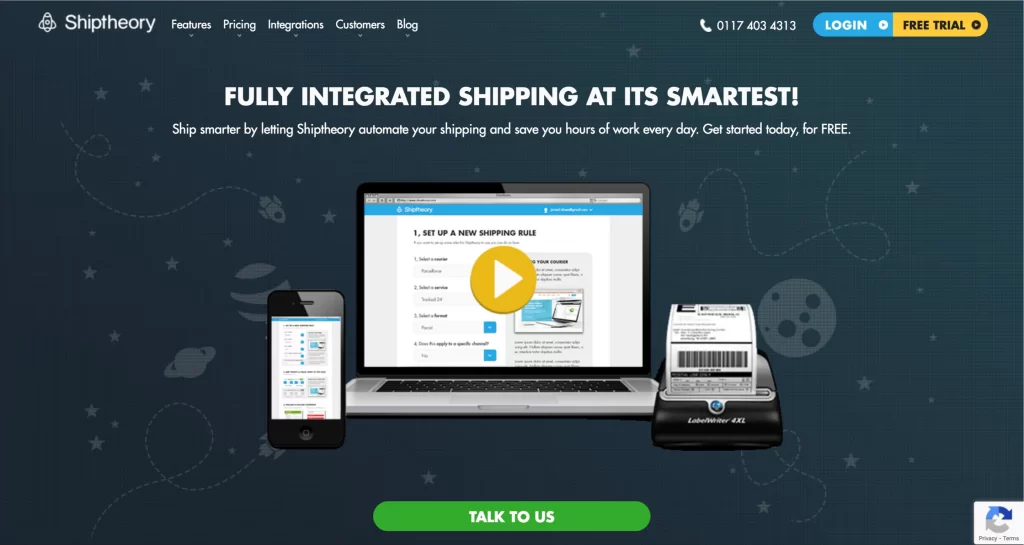
Shiptheory is the last Multiorders alternative in the list. It is an automated shipping and order processing system that makes it easy for businesses to manage their orders and shipping. The system is designed to work with a variety of shipping carriers, including FedEx, UPS, and DHL. Shiptheory also offers integration with a number of eCommerce platforms, such as Shopify, Magento, and WooCommerce.
The system is easy to use and can be set up to automate the shipping process for your business. With Shiptheory, you can manage your orders and shipping from one central location. The system will also automatically update your shipping carrier’s tracking information so you can keep track of your orders.
If you’re looking for an easy way to manage your shipping and orders, then Shiptheory is a great option. The system is affordable and easy to use, and it offers a variety of features that can benefit your business.
Pricing: From £18 to £433 per month
Multiorders Alternatives: Frequently Asked Questions
Popular Multiorders alternatives include: Consider your specific needs when looking for tools like Multiorders: Some multiorders free alternative offer free plans with limited features, like LitCommerce. However, you’ll likely need a paid plan for robust functionality and high-volume operations. Several Multiorder alternatives prioritize user-friendliness, like LitCommerce and Sellbrite. Look for intuitive interfaces, drag-and-drop functionality, and comprehensive onboarding resources. Most Multiorders competitors offer data migration support to ease the transition. Plan and communicate with your team to minimize disruption during the onboarding process. Remember, choosing the right Multiorders alternative is personal. Evaluate your needs, test some platforms, and find the one that best fit your business.
Hope You Find Your Best Multiorders Alternatives
The alternatives to Multiorders, each with its unique set of features and strengths, offer a range of possibilities:
- Seek platforms that provide seamless integration with your existing sales channels and other business systems.
- Assess the scalability of the solution to ensure it can grow with your business.
- Consider the level of customer support provided, as this can be invaluable, especially during the setup process and for ongoing troubleshooting.
- Evaluate the user interface and ease of use, since an intuitive platform can greatly enhance productivity.
By carefully weighing these aspects, you can determine which Multiorders alternatives aligns best with your business goals and operational requirements. Remember that the perfect solution is not about finding the most feature-rich platform, but rather the one that harmonizes with your business’s unique DNA. If you are searching for an easy-to-use and reasonably priced app to help you along the way, LitCommerce is a partner you should consider. Please contact us at any moment for thorough consulting.


